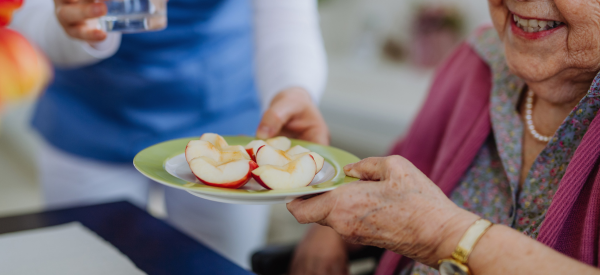According to a variety of studies, brain-building activities help to keep neurons firing actively. In fact, seniors who regularly participate in brain-stimulating activities are over 60% less likely to be later diagnosed with dementia than those who don’t. With that in mind, here are a few fun games to try that will give your brain a good work out: Use Seven Words. This one will challenge your brain and your creativity. Attempt to describe your day or tell a short story in only seven words. It’s harder than you would think. Play with Numbers. Bored waiting for a doctor’s appointment?
Read More
Posts by Freedom Home Care
What Every Senior Should Know About Arthritis
Arthritis affects nearly half of all seniors, and the numbers are on the rise. But what exactly is arthritis? It’s not a general term for joint pain as many people think. In fact, there are a few different kinds of arthritis, each with its own symptoms and treatments. Here are a few things that all seniors should know about arthritis. Types of Arthritis: Osteoarthritis. This arthritis has to do with wear and tear. In our joints, there is cartilage at the end of each bone. The cartilage, which is as smooth as ice, covers the rough ends of the bone.
Read More
Necessary Steps to Avoid Foot Pain
The moment you put on your shoes, you know it’s going to be a bad day. You try to ignore it. Walk it off, you think. But it only gets worse. You then spend most of the day sitting, avoiding even getting up to get a glass of water. Sure, you’re thirsty, but it beats the alternative. And that is commonly what happens with severe foot pain. Foot pain in seniors is very common. That’s because feet change as we age. They begin to flatten and widen. The fat that has been protecting the bones on the bottom of
Read More
The Secret to Senior Happiness
Do you know a happy and stress-free senior? Chances are that he or she is a social butterfly. A Gallup poll shows that happiness and stress reduction are clearly linked to socialization. How do you stop a senior from getting too socially isolated and perhaps depressed? Here are some easy tips to help keep a senior social: Arrange transportation. If a senior is unable to drive, then she may not be able to be as social as she likes. Arrange transportation through family and friends, or find a service to drive her to events and outings. Schedule guests at mealtime.
Read More
Senior Gadgets to Make Life Easier
The numbers are becoming too great to ignore. The number of seniors in this country is increasing at an incredible rate. And with 68% of seniors choosing to age in place, improvements need to be made to their homes to ensure their safety. Business owners and technology developers are chomping at the bit to create better ways for seniors to thrive at home with new technology. Here are some great new gadgets that will make life easier in the coming year: GreatCall Responder. Do you have a device that you wear that has a button to alert emergency services in
Read More
Plan to Age In Place
Many seniors today wish to “age in place,” meaning they choose to remain at home instead of living in a nursing home. And no wonder! Studies show that seniors at home are often much healthier and happier. Freedom Home Care offers services for seniors who wish to maintain their independence. Here are some things to consider when deciding to continue living at home: 1. The house. Often, modifications need to be made to the home to optimize it for the senior. It may be as simple as moving clutter and taping down rugs, or as involved as moving the master bedroom to the
Read More
Keep Seniors with Dementia Safe at Home
Caring for a senior with dementia can be overwhelming. To make it a little easier, prepare the senior’s home to be as safe as possible. Here are six simple things you can do to keep your loved ones safe at home: 1. Remove clutter. Limit decorative objects and discard any fake fruit or other material that may appear edible. Remove any plants that are poisonous. 2. Prepare glass surfaces. Put a decal on windows and glass doors at eye level to avoid injury. 3. Prepare for the cold. Keep blankets throughout the house. Remove any space heaters or electric blankets. Don’t leave the
Read More
Seniors Living with Pets
Pets can be very important to seniors’ mental and physical health. Caring for a dog or cat can lower blood pressure, decrease the chance of depression, and generally increase a sense of well-being. However, some seniors have trouble providing the best care for their pets because of health or financial issues. Luckily, Freedom Home Care is able to provide assistance to seniors by helping take care of their pets. Care assistance. Caring for pets can be more than a senior can physically handle. Dogs in particular need regular exercise, and a senior may not be able to walk the dog as much
Read More
4 Tips to Combat the Cold Weather
Temperatures have been frigid and a polar vortex just made it through the area – and it’s only the beginning of winter! As we age, our bodies are no longer able to regulate internal temperatures as well, making seniors the most susceptible to hypothermia of any age group. With the help of the Daily Tribune, we have put together some great ways to stay warm this winter: 1. Check your thermostat. Even though the cost to heat your house may increase, safety should be your main concern. Set your thermostat to at least 65 degrees. 2. Winterize your house. Consider enlisting some help
Read More
Resolutions All Seniors Should Make
Making healthy resolutions is an important part of the New Year. We strive to eat healthier, exercise more, and lose those few pounds we gained over the holidays. But maybe we should try a different approach for 2014. Instead, try making resolutions to help not just your physical health, but your mental health as well. Resolutions for a Healthy Mind: 1. Get more sleep. It is recommended that most adults get at least seven hours of sleep a night. Getting less can lead to increased appetite, anxiety, and memory loss. Try turning in early and catching some extra zzz’s to stay
Read More



